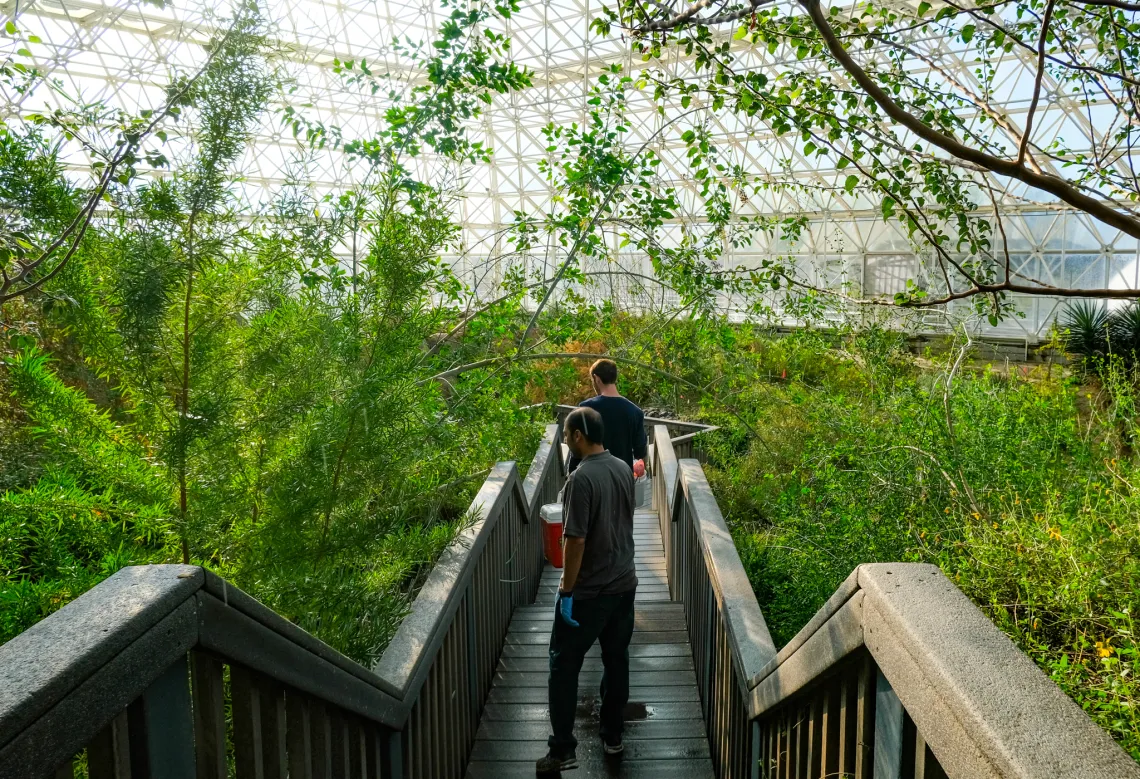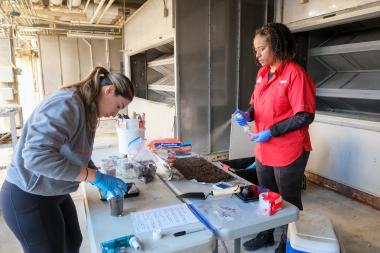Soil science research aims to prevent future pandemics
ENVS professor Dr. Luisa Ikner teams up with College of Public Health to determine longevity of viruses in soil.

How can University of Arizona scientists conduct virus research in ecosystems from around the world without leaving Tucson? The answer: Biosphere 2(link is external).
Dr. Luisa Ikner(link is external), Assistant Professor in the Environmental Science Department, is co-leading an investigation with Dr. Marc Verhougstraete of the College of Public Health(link is external) into how long viruses can survive within soils from various ecosystems.

Dr. Luisa Ikner works with a graduate student to test soil samples in Biosphere 2.
Normally, this would require collecting soil samples from around the world, and then recreating those conditions in a lab back in Arizona. Instead of travelling the globe, the research team has access to the world’s largest controlled-environment research facility at Biosphere 2.
The project is currently in Phase 1 and will provide information on how quickly model viruses that are not harmful to humans die-off within soils, and whether their presence impacts bacterial communities.
Phase 2 will follow to assess how long viruses survive on synthetic surfaces, biotic surfaces, and in different water systems at Biosphere 2. If Phases 1 and 2 reveal minimal impacts then Phase 3 will commence, which includes a controlled aerosolized release of the viruses to measure transport, spread, and survival under different environmental conditions throughout the facility.
Read the full story of this research project on the College of Public Health’s website(link is external).
